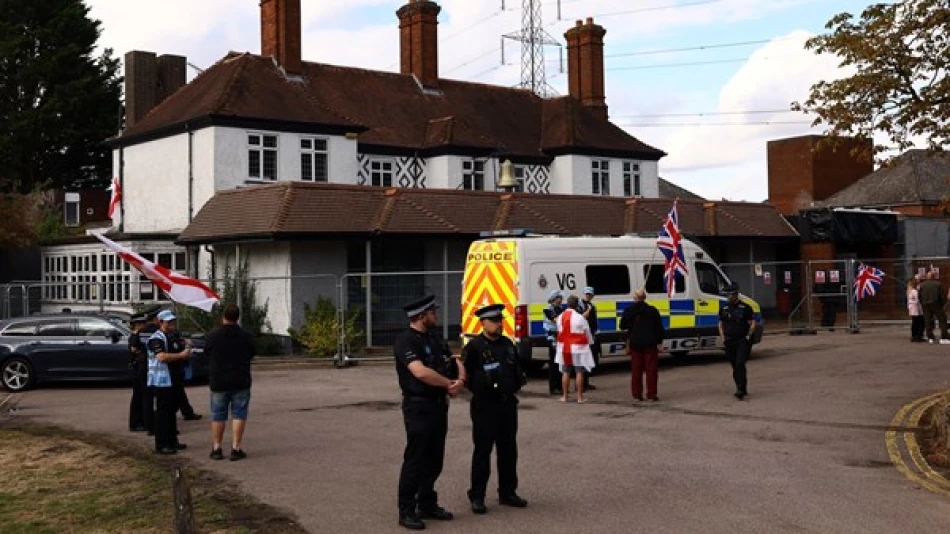
Asylum Seekers' Housing Targeted by Protesters in Britain
UK Anti-Asylum Protests Turn Violent as Government Wins Legal Battle to House Migrants
British police arrested eight people over the weekend as masked protesters attempted to storm two London hotels housing asylum seekers, marking a dangerous escalation in anti-immigration sentiment. The incidents came just one day after Prime Minister Keir Starmer's government secured a crucial court victory allowing it to continue using contested accommodation facilities for migrants.
Violent Confrontation at Heathrow Hotel
On Saturday, two separate groups of anti-refugee protesters marched toward the Crown Plaza hotel near Heathrow Airport, where some attempted to force entry into the government-designated asylum accommodation. The Metropolitan Police reported that five arrests were made during the incident, which resulted in minor injuries to two officers.
"We understand that emotions can run high on these issues, but when the line is crossed from peaceful protest to committing crimes, including injuring our officers, we will take immediate action," said police official Adam Slonicki in a statement that underscores the growing tension around Britain's asylum policy.
Second Incident Compounds Security Concerns
In a separate confrontation late Friday evening, police arrested three men outside another asylum hotel in Epping, east London. This location had become a flashpoint after the government successfully challenged a previous court order that would have forced the removal of asylum seekers from the facility following an alleged assault by one resident.
Legal Victory Strengthens Government Position
The Starmer administration's court win on Friday represents a significant policy victory, allowing continued use of hotel accommodation despite local opposition and isolated incidents involving residents. This legal precedent could prove crucial as Britain grapples with housing thousands of asylum seekers while permanent accommodation remains scarce.
The government's strategy of using hotels as temporary asylum housing has become increasingly controversial, creating tension between humanitarian obligations and public safety concerns. Unlike countries such as Germany or Sweden, which have established dedicated refugee processing centers, Britain has relied heavily on converting commercial accommodation—a approach that places asylum seekers in direct contact with local communities.
Broader Implications for UK Immigration Policy
These incidents reflect deeper challenges facing European nations managing migration flows. While countries like Denmark have taken hardline approaches to asylum housing, often isolating facilities in remote areas, Britain's urban hotel strategy has created visible focal points for both support and opposition.
The weekend's violence suggests that public sentiment around asylum policy remains volatile, potentially complicating the Labour government's broader immigration reform agenda. For investors and businesses in the hospitality sector, the incidents highlight reputational and security risks associated with government accommodation contracts.
The escalation from peaceful protest to attempted forced entry marks a concerning development that could influence how and where the government chooses to house future asylum seekers, potentially driving up costs and limiting available options in an already strained system.
Most Viewed News

 Layla Al Mansoori
Layla Al Mansoori






